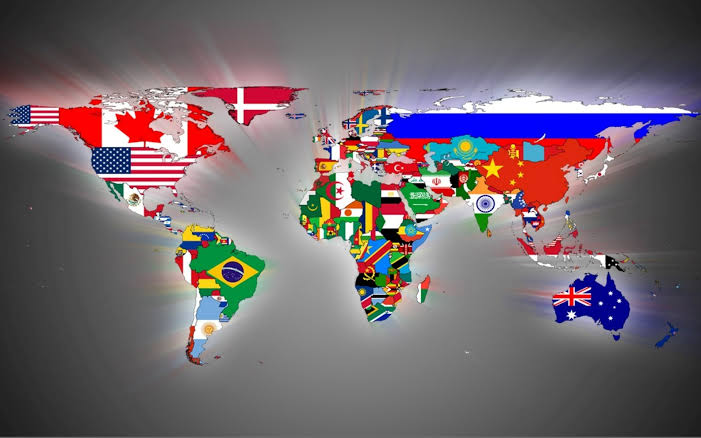
The Geopolitical Battle Over Resources: How Economic and Political Power Are Being Redefined
In the 21st century, the competition for natural resources has intensified, significantly reshaping the geopolitical landscape. As the world grapples with pressing challenges such as climate change, energy transition, and technological advancement, nations are increasingly vying for control over essential resources, particularly rare earth metals and energy sources. This battle is not just about securing materials; it is a struggle for economic dominance and political influence on the global stage.
The Importance of Rare Earth Metals
Rare earth metals, a group of 17 elements essential for the production of high-tech devices, renewable energy technologies, and military applications, have become pivotal in this geopolitical struggle. These metals are critical for the manufacturing of smartphones, electric vehicles (EVs), wind turbines, and advanced military systems. Despite their name, rare earth metals are not necessarily rare in abundance; however, their extraction and processing are geographically concentrated.
China dominates the global supply chain for rare earth metals, controlling over 60% of global production and more than 80% of processing capabilities. This dominance gives China significant leverage in geopolitical negotiations and a substantial advantage in technological competition. The United States, along with other nations, has recognized this vulnerability and is actively seeking to diversify supply chains. Initiatives to develop domestic production capabilities and invest in mining operations in allied countries are underway, reflecting a strategic pivot in response to resource dependency.
Energy Resources: The Battle for Oil and Gas
In parallel, the competition for energy resources remains a defining characteristic of international relations. The fluctuating dynamics of oil and natural gas markets have profound implications for global stability and security. The recent energy crisis exacerbated by geopolitical tensions, such as the ongoing conflict between Russia and Ukraine, has underscored the fragility of energy supplies and the importance of energy independence.
Europe’s dependence on Russian gas has spurred a reevaluation of energy policies, driving efforts to secure alternative sources and accelerate the transition to renewable energy. The United States has capitalized on this need by exporting liquefied natural gas (LNG) to Europe, bolstering its position as a global energy player. However, the shift towards renewable energy sources, particularly solar and wind, raises questions about future energy geopolitics and the role of critical minerals necessary for these technologies.
The Impact on International Relations
The scramble for resources is reshaping international relations and alliances. Countries are forming new partnerships based on resource availability and strategic interests. For instance, the United States has strengthened ties with Australia and Canada, two countries rich in minerals essential for clean technology and defense applications. Similarly, the European Union is forging partnerships with African nations rich in critical minerals, ensuring a stable supply chain while promoting sustainable development.
China is also actively pursuing resource-rich countries through its Belt and Road Initiative (BRI), which aims to secure access to natural resources and expand its geopolitical influence. By investing in infrastructure and development projects in Africa, Latin America, and Asia, China is creating a network of dependency that enhances its resource security while reshaping the political landscape in these regions.
Environmental and Ethical Considerations
As nations compete for resources, environmental and ethical considerations cannot be overlooked. The extraction of rare earth metals and fossil fuels often comes at a significant environmental cost, leading to habitat destruction, pollution, and social displacement. Countries must navigate the delicate balance between resource exploitation and sustainable practices. International frameworks and agreements, such as the Paris Agreement, aim to address these challenges, but enforcement remains inconsistent, and geopolitical interests often take precedence over environmental concerns.
Moreover, the ethics of resource extraction, particularly in developing countries, raises questions about human rights and equitable distribution of wealth. Resource-rich nations must confront issues related to corruption, governance, and the equitable sharing of benefits from natural resources. The global community is increasingly calling for responsible sourcing and transparency, pushing for practices that respect human rights and promote sustainable development.
Conclusion
The geopolitical battle over resources is a defining feature of contemporary international relations, as nations navigate the complexities of securing essential materials amid shifting economic and political landscapes. The competition for rare earth metals and energy resources will continue to shape alliances, influence policy decisions, and redefine global power dynamics. As the world transitions to a more interconnected and resource-dependent future, the need for collaboration, sustainable practices, and responsible governance will be paramount. In this new era, those who successfully navigate the challenges of resource management will not only secure their economic interests but also shape the political narratives that govern the global order.
In summary, the quest for resources has become a central tenet of geopolitical strategy, compelling nations to rethink their alliances, investments, and policies in an increasingly competitive world. As this battle unfolds, the implications for global stability, environmental sustainability, and ethical governance remain profound, demanding attention and action from the international community.
Riya Kothavale is a Fellow, and the Assistant Editorial Director at the Sixteenth Council.



